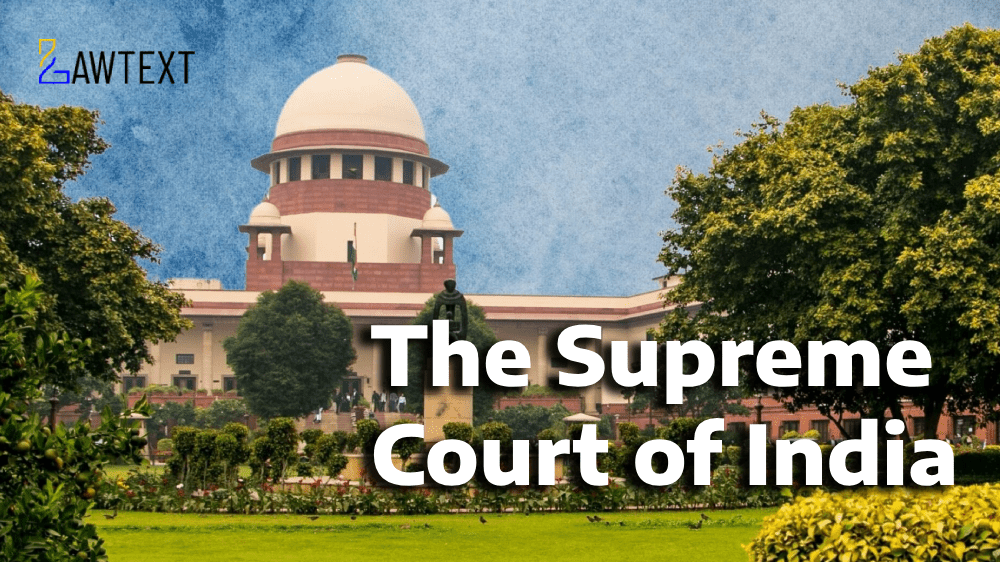CASE NOTE & SUMMARY
The quashing of an FIR filed under Sections 406, 498-A, 420, and 120-B of the IPC. The Supreme Court upheld the quashing of proceedings against the cousin of the complainant’s son-in-law (Accused No.6) and extended the same reasoning to quash the proceedings against Accused No.5, his wife. The Court emphasized the importance of carefully scrutinizing allegations in matrimonial disputes to prevent over-implication.
- The allegations against Accused Nos.5 and 6 (not immediate family members) were deemed vague, exaggerated, and unsupported by material evidence.
- The Court highlighted the abuse of criminal law in matrimonial disputes, reiterating the need to avoid over-implication of extended family members.
- The Supreme Court quashed the FIR and subsequent proceedings against both accused, finding them frivolous and an abuse of legal process.
Acts and Sections Discussed:
- Indian Penal Code (IPC):
- Section 406: Criminal breach of trust.
- Section 498-A: Cruelty by husband or relatives of husband.
- Section 420: Cheating and dishonestly inducing delivery of property.
- Section 120-B: Criminal conspiracy.
- Code of Criminal Procedure (CrPC):
- Section 482: Inherent powers of the High Court to quash proceedings.
Ratio Decidendi:
- Legal Principle: General allegations without specific evidence are insufficient to implicate distant relatives in matrimonial disputes.
- Practical Application: Courts must ensure that criminal law is not misused to harass distant relatives who have no active involvement in matrimonial discord.
Subjects:
Quashing of FIR in matrimonial disputes.
Matrimonial law, abuse of process, Section 482 CrPC, over-implication, criminal law, Supreme Court.
Introduction:
- [Para 1-2]: Appeals filed challenging a Punjab and Haryana High Court order that quashed the FIR for Accused No.6 but retained it for Accused No.5.
- Key Issue: Whether generalized allegations justify prosecution of distant relatives under Sections 406, 498-A, and 420 IPC.
Background and Relationship of Parties:
- [Para 4-5]: Matrimonial dispute between Vandana Sharma (daughter of complainant) and Amit Sharma (husband). Accused Nos.5 and 6 are distant relatives of Amit Sharma (cousin and his wife).
- Fact Highlight: Accused Nos.5 and 6 resided in a different city (Mohali) from the complainant’s daughter.
Legal Arguments:
- [Para 6-7]: Arguments from Accused No.5:
- Allegations are vague, omnibus, and mala fide.
- Accused No.5 has no active role in the marital discord.
- [Para 12-13]: Complainant’s argument:
- FIR alleges involvement in visa-related financial demands.
- Court should refrain from quashing as charges can be contested during trial.
Analysis of Allegations:
- [Para 9-11]: Reference to Supreme Court precedents (Preeti Gupta v. State of Jharkhand, Geeta Mehrotra v. State of UP, and Kahkashan Kausar v. State of Bihar):
- Courts must scrutinize complaints in matrimonial disputes to prevent over-implication.
- [Para 16-18]: FIR contained vague allegations of financial demands, unsupported by evidence.
Decision and Observations:
- [Para 19-21]: High Court’s error:
- Inconsistent decision to quash FIR against Accused No.6 but not against Accused No.5.
- [Para 22]: Supreme Court’s Finding:
- Both accused had no direct involvement in the alleged offences.
- Vague, exaggerated allegations cannot sustain criminal proceedings.
Final Orders:
- [Para 24]: Criminal proceedings, including the FIR and chargesheet, quashed for Accused Nos.5 and 6. Appeal by complainant dismissed.
Citation: 2024 LawText (SC) (11) 263
Case Number: Criminal Appeal No. of 2024 (@ SLP (Crl.) No. 3995 of 2022) With Criminal Appeal No. of 2024 (@ SLP (Crl.) No. 13579 of 2023)
Date of Decision: 2024-11-26
Case Title: Payal Sharma Versus State of Punjab & Anr.
Before Judge: (C.T. Ravikumar J. , Rajesh Bindal J.)
Appellant: Payal Sharma
Respondent: State of Punjab & Anr.

